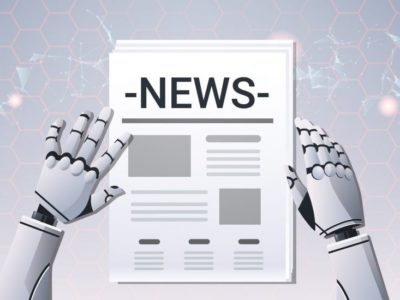By Tim Humphreys-Davies, CEO: Pinnacle
The artificial intelligence (AI) revolution represents a transformative era, characterised by the rapid advancement and integration of AI technologies into various aspects of society and across key business areas. From agriculture and education to cybersecurity, AI is guiding innovation and transforming industries, and exponential growth in both computing power and data availability are key drivers of this revolution.
RELATED: Artificial Intelligence and the future of work – the opportunity for Africa
The future of AI is thus critical in unlocking new possibilities. We are seeing these solutions becoming increasingly sophisticated, capable of handling more complex tasks beyond the banal and repetitive, and making decisions with unprecedented accuracy and efficiency.
From deep learning algorithms to edge computing and explainable AI, the potential for AI to transform how we work, live, and interact with technology is immense.
Enabling positive advancements across various industries
AI-powered solutions allow an organisation to become more efficient and competitive than ever before, by streamlining its operations and anticipating its needs. A number of vertical industries have already been positively affected by AI, including manufacturing, retail, healthcare, financial services and transportation.
Outlined below are several industry use-cases with exceptional outcomes that are available from the powerhouse vendors within Pinnacle’s Enterprise portfolio, showing how the following vertical industries have benefited from the power of AI solutions.
Healthcare:
- Medical imaging analysis: AI algorithms can assist radiologists in interpreting X-rays, MRIs and CT scans, aiding in early disease detection.
- Drug discovery: AI models can analyse vast amounts of molecular data to identify potential drug candidates and accelerate the drug development process.
Financial services:
- Fraud detection: AI algorithms can detect fraudulent transactions by analysing patterns and anomalies in financial data, helping to prevent financial losses.
- Algorithmic trading: AI-powered trading algorithms can analyse market data in real time to make rapid and data-driven investment decisions.
- Risk assessment: AI models can assess credit risk, insurance claims and loan applications by analysing historical data and predicting future outcomes.
Retail:
- Personalised recommendations: AI can analyse customer preferences and behaviour to provide personalised product recommendations, improving the shopping experience and increasing sales.
- Inventory management: AI-powered systems can forecast demand, optimise inventory levels and streamline supply chain operations to minimise stockouts and reduce costs.
- Customer service automation: AI chatbots and virtual assistants can handle customer inquiries, provide support and process orders, thereby improving efficiency and reducing wait times.
Transportation:
- Autonomous vehicles: While parts of this application are still in a relatively early phase, AI technologies are being used to enable self-driving cars, trucks and drones to navigate roads and airspace safely and efficiently, potentially reducing accidents and congestion in the future.
- Traffic management: AI algorithms can analyse traffic patterns and optimise signal timings to reduce congestion and improve traffic flow in urban areas.
Manufacturing:
- Predictive maintenance: AI models can analyse sensor data from industrial equipment to predict when maintenance is needed, reducing downtime and minimising maintenance costs.
- Quality control: AI-powered systems can inspect products for defects and anomalies in real time, ensuring product quality and reducing waste.
- Robotic automation: AI-enabled robots can perform repetitive tasks such as assembly, packaging and material handling with speed, precision and flexibility.
These are just a few examples, and the potential applications of AI are virtually limitless.
Using AI to drive positive societal change
Beyond the technical advancements, what truly excites me is the potential for AI to make a positive impact on the world.
AI is being used to address some of the most pressing challenges facing humanity, from healthcare and education to climate change and social inequality. The ability to harness AI for good, and drive positive societal change, is something that inspires us every day.
It is said that with great power comes great responsibility and so, as AI becomes increasingly integrated into our lives, we must ensure that it is developed and deployed responsibly, with careful consideration of ethical, social and regulatory implications.
Transparency, fairness and accountability are paramount as we continue to push the boundaries of what AI can achieve.
As a leading ICT company, Pinnacle is fully committed to being at the forefront of this AI revolution, investing in cutting-edge research and development, building partnerships with ground-breaking AI experts and organisations, and using our expertise to develop AI solutions that empower businesses and individuals to thrive in the digital age, as well as the consulting services around these offerings.
An important part of this has been the recent establishment of a new division focusing on AI services, to assist our partners and customers in dealing with both the challenges and opportunities brought by AI, one of which is the need to facilitate the necessary skills and expertise required to help local businesses join the AI revolution. In line with this, Pinnacle is currently making key AI-focused appointments, building a team to support its AI endeavours, both internally and at a client level.
Pinnacle is working closely with global companies that are at the forefront of AI – including NVIDIA, SuperMicro, Dell, Infinidat Nutanix, Guardicore, Spectra and Commvault – to help make local businesses AI-ready from an infrastructure point of view. Through these partnerships, we are able to offer a wide range of technologies to facilitate the necessary elements for an AI implementation, including hardware, software and the technology required for computer frameworks.
In conclusion, the future of AI is bright, and we are excited to be a part of it. We are confident that AI will continue to drive innovation, empower businesses and individuals, and create positive change in the world.

Tim Humphreys-Davies, CEO: Pinnacle

































